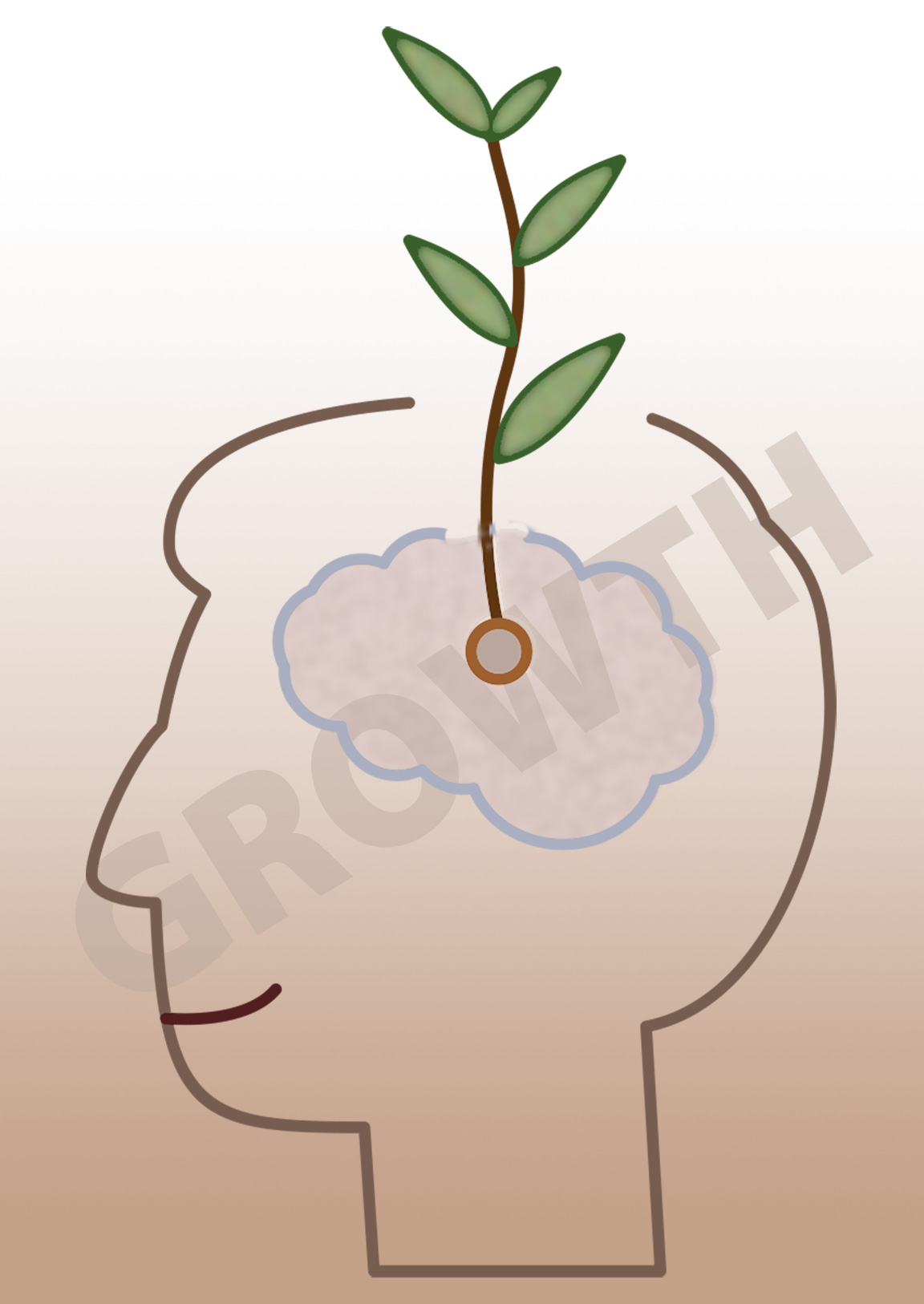
The Barnes & Conti Resource Library:
Innovation & Risk-Taking
Staying Focused and Optimistic in Turbulent Times: Shifting to Innovation, Intelligent Risk-Taking and Innovation Mindsets
by Nelson Soken, Ph.D, Chief Innovation Strategist

During these unpredictable and turbulent times, it is challenging for all of us to stay focused and to persevere. With so many factors that are out of control, how do we all retain a semblance of normalcy and control? As Franklin D. Roosevelt stated in his first inaugural address in March 1933 (after defeating Herbert Hoover and during the Great Depression): “The only thing we have to fear Is fear Itself.” In the book, Leaders: The Strategies for Taking Charge, (Bennis, Warren and Burt Nanus: Harper Business, 2007), the authors describe a phenomenon called the Wallenda Factor, named after the high-wire walker, Karl Wallenda, who fell to his death in 1978 in Puerto Rico. The Wallenda factor is when the perception one makes about the outcome of an event leads to the outcome occurring, because one’s energy and attention are so focused on that specific outcome. Excerpts from the book are as follows:
“Shortly after [Karl] Wallenda fell to his death in 1978 (traversing a 75-foot high wire in downtown San Juan, Puerto Rico), his wife, also an aerialist, discussed that fateful San Juan walk, ‘All Karl thought about for three straight months prior to it was falling. It was the first time he’d ever thought about that, and it seemed to me that he put all his energies into not falling rather than walking the tightrope.’ Mrs. Wallenda added that her husband even went so far as to personally supervise the installation of the tightrope, making certain that the guide wires were secure, ‘something he had never even thought of doing before.’”
Thus, Karl Wallenda focused all his energies and attention into not falling rather than concentrating on walking the tightrope; this ultimately contributed to his fall.
An interesting insight from Roosevelt’s quote and the concept of the Wallenda Factor is that what and where we focus our attention can have a major impact on how we perceive the world, what actions we take, and ultimately what the outcome will be. Roosevelt’s inaugural speech and the Wallenda Factor highlight the need to keep laser-focused on future positive outcomes (or end results), and to embrace the challenge of delivering those outcomes with resilience, flexibility, and expectation, rather than grappling with fear which can lead to analysis-paralysis, inaction and/or a sense of powerlessness. Perhaps, in these times more than ever, experimentation, creativity and innovation are needed to move us forward. Rather than seeing negative outcomes as failures, if we look to them as “lessons learned,” we will be one step closer to success. So, how do we overcome fear and avoid focusing on negative outcomes, so that we can move forward to a positive future once we get through the current turmoil?
Fostering a Growth Mindset: How we survive and thrive through these unprecedented times?
In Barnes & Conti’s Intelligent Risk-Taking workshop, we discuss the fact that risk is defined as:

- The outcome is unknown or not easily predictable.
- There is a chance of loss and negative consequences.
- There is an opportunity for gain or better outcome.
Interestingly, entrepreneurs and innovators focus on and get energy from uncertainty and the potential for an upside and gain, while most people fixate on the uncertainty and lack of predictability, focusing on the potential negative consequences and experiencing fear.
How often have you recently heard news and business commentators comparing our current situation to previous economic or health events (Great Depression, 9/11, 1998 recession, 2000 Internet crash, 2008 financial crisis, 1918 Pandemic, Swine Flu, Avian Flu, SARS, MERS). Comparisons can provide insight, but at some point it becomes a waste of energy to try to draw too many conclusions – past events are all lagging historical indicators that may or may not be relevant to current events. Perhaps we need to be willing to accept that what we are currently experiencing is unique, that it will take creative solutions, and that we must learn to feel comfortable with experimentation and not having all the answers before we take action.
Below are some thought-provoking questions to reflect on that can support our journey as we navigate these uncharted waters. They focus on potential positive outcomes (optimism), rather than unfruitfully obsessing and relentlessly focusing on potential negative outcomes (fear).
- Have you clearly defined the issue and where we are headed without jumping to conclusions too quickly? Given the situation and the fact that the status quo has “blown up,” it might be an opportunity to explore big innovative solutions that previously would have been quickly dismissed.
- Have you looked at the broader context so that you clearly understand all of the factors that could impact the outcome? It’s a good time to test one’s assumptions about how the world works and to look at broad societal trends that will change forever because of this health and economic event; i.e., social distancing and remote work, live- streaming entertainment and gaming, internet buying and distribution, remote and digital health.
- Have you identified all the stakeholders you need to get on board and how to communicate a compelling story to them? Now, more than ever, it is critical to act fast and the only way to accomplish that is to quickly identify and convince the key stakeholders who can decide and provide the required resources and support.
- Are you collaborating with a broad range of people with diverse backgrounds and experiences and employing a variety of creativity tools to come up with a lot of different solutions that are easy to execute on as well as “wild and crazy”? Bringing together a diverse set of people to generate a great many suggestions and build on one another’s ideas means that more and better ideas will be identified. It’s also important to think “outside of the box” and explore wild ideas, given the complexity of the situation. Old ways of thinking will probably not suffice in these unprecedented times.
- What are you doing to ensure that you can get everyone to make the best possible decision and actually move forward without getting bogged down in analysis-paralysis and inaction? Time is of the essence, so quick and decisive action that may not be perfect is most likely better than spending a lot of time analyzing the situation to come up with the “perfect answer.”
- What are you doing to ensure that all the “lessons learned” are not lost for the future? What we are learning today needs to be captured so we are prepared for future circumstances like – or even very different – from these. This will not be the last pandemic or severe economic disruption we will experience.
Clearly, these are uncharted and turbulent times, but rather than focusing and worrying about the future, this may be an opportunity for reflection and inquiry on the areas of collective potential growth, and a positive disruption of a fixed mindset in terms of “the way things have always been.” If you’re open to exploring some new approaches and tools, Barnes & Conti has surveys, assessments, and virtual workshops around the essential topics of Strategic Thinking, Intelligent Risk-Taking, Managing Innovation, and Exercising Influence that can assist you in getting a “pulse” of where you and/or your organization stand on these critical competency areas and some relevant training to help you move to a growth mindset. Please let us know how we can help and feel free to reach out to me, Nelson Soken, or Lauren Powers (see links below) to discuss what’s happening for you and your organization. We are excited about exploring new ways that we can move through this journey together.
Nelson Soken, Ph.D, is CEO of N.H. Soken Consulting and Chief Innovation Strategist at Barnes & Conti
Browse the Barnes & Conti Resource Library for more articles on innovation and risk-taking.
Articles available in the following areas:
More articles by Nelson Soken, Ph.D.
- Applying Design Thinking to Leadership and Organizational Development
- How to keep the “HUMAN” in Human Resources
- Attention as a Commodity
- Innovation: Does It Always Have to Be “Disruptive”...
- Being an Amazing Facilitator is Like Being a Successful Stand-Up Comic
- Everyone is Interested in Intelligent Risk-Taking!
- What Kills Innovation? Your role as a leader in supporting an innovative culture*
- The Innovation Journey: How can you lead and manage it?*
- Innovation, a Critical Component of Business Success
About Barnes & ContiNewsPublic ProgramsEvents |
Programs & ServicesInfluence & Communication
Innovation &
Decision-Making & Problem Solving Leadership
Internal Consulting Change Management |
Resources
Apps for Mobile Devices |
Follow Us!ContactBarnes & Conti Blog
|
